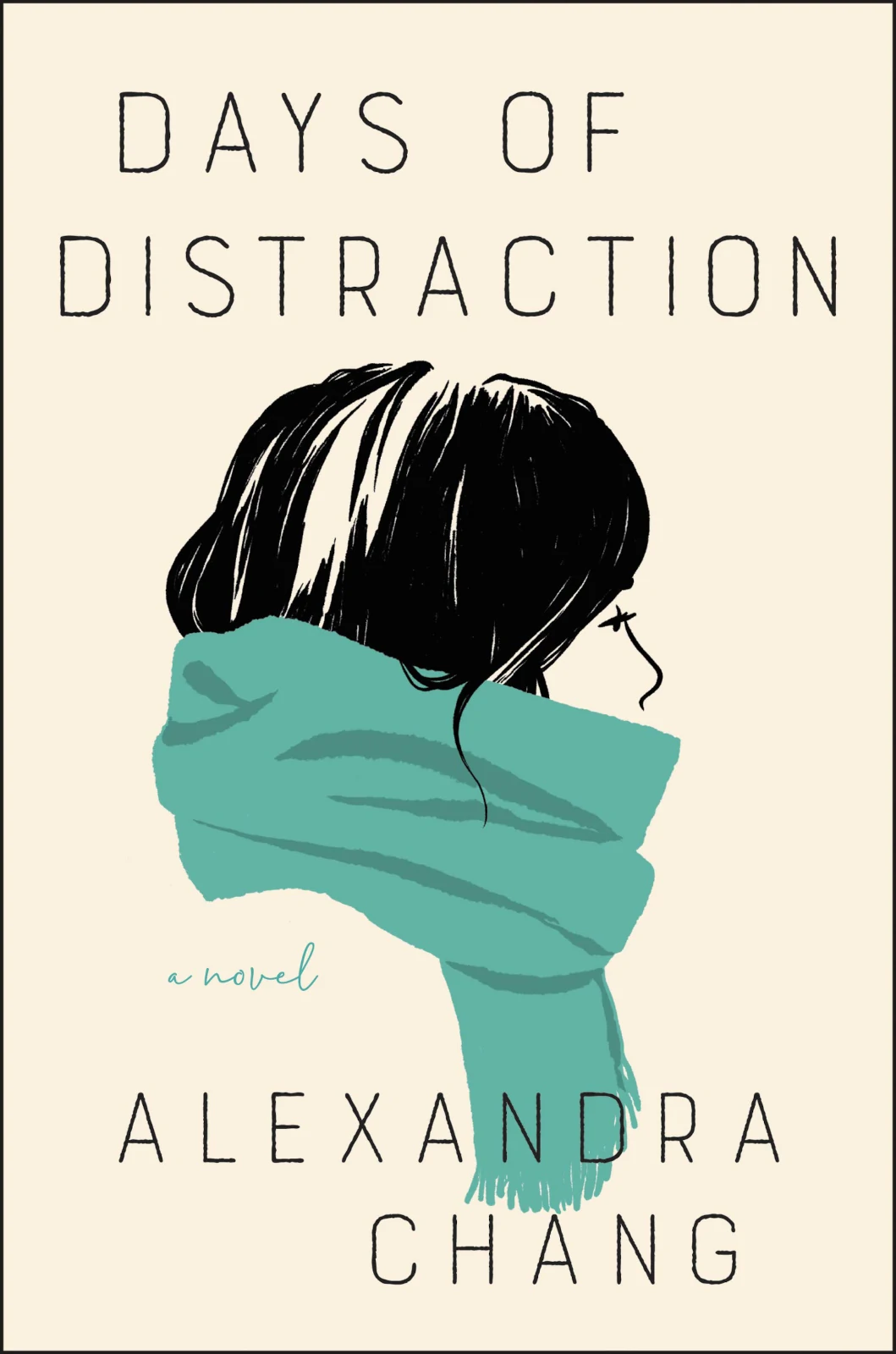
Some Kind of Truth: A Review of Days of Distraction by Alexandra Chang
Words By Delaney Heisterkamp
Published March 31, 2020 by Ecco
In Days of Distraction, an unnamed narrator leaves behind her family and California job as a tech journalist to follow her boyfriend to upstate New York—a gesture grand enough, she believes, to wipe away her misgivings about their differences as a Chinese American woman and a white American man. I read the first pages of this book in a coffee shop, nursing a long-empty, grande chai while two young women at a neighboring table discussed one’s recent engagement. Days of Distraction’s jacket copy activated the same fight-or-flight instinct as hearing the phrase “ring before spring” float among the industrial-chic hanging lamps and the chalkboard menus. In short, I expected a train wreck. What I found instead in Alexandra Chang’s debutwas an incisive classification of loneliness, a critical look at the model minority myth, and a surprising answer to the question: Should I leave?
Days of Distraction unfolds in a tapestry of millennial uncertainty and complicated loves, rubbing shoulders with the likes of Weike Wang’s Chemistry and Rachel Khong’s Goodbye, Vitamin. The narrator’s father ends every phone call with a list of what she should bring from America when she visits him in China, requests that the narrator has never fulfilled. The boyfriend, named J, is at times endearing and at others frustratingly oblivious to the narrator’s experiences in a mostly white town. The prose occasionally wobbles between explaining the basics of critical race theory and assuming the audience is already on the same page. Chang’s strongest moments are the quietly devastating ones, where navigating microaggressions becomes “a sort of dance, the steps for which I cannot and do not want to master,” and gatekeeping strikes mercilessly from within one’s own community.
Chang concentrates vastness into the shockingly momentary. Boots at Nordstrom Rack become a surprisingly apt metaphor for the millennial experience, while tea bag aphorisms echo with a crisp, chiming loneliness. At one point, the narrator finds herself alone in the foyer during a house party, ankle-deep in a sea of other people’s shoes. Chang shines in this liminal moment: “Carrying this sadness, which feels both delicate and heavy, like a big glass mirror, I decide it’s time for me to go.” Restlessness is a texture that Chang weaves with breathless dexterity into every page.
While Days of Distraction is described as a novel, it reads like a combination of literary journalism and lyric essay. The narrator’s research on interracial relationships—everything from Yahoo! Answers to historical documents to Pew statistics—pulls taut the gleaming thread of her anxieties amid a weft of loneliness and limbo. The woman’s uncertainty about her authority over her own narrative paints a vivid portrait of what it means to navigate race, transnationality, and gender in multicultural America. Beneath it all beats a dark, youthful anxiety: Who do you become when you’re jobless? What remains when you stop moving, and others leave you behind? Time stretches and stutters in these days of accumulation.
Our narrator is far from reliable, though this is one of the most striking aspects of the novel. The boyfriend becomes an increasingly complicated source of conflict—he drives for hours through the snow to her, he mispronounces her name—it’s hard to tell how starkly the narrator’s loneliness distorts her description. Halfway through the novel, she admits to the reader that she altered the details of the last time she asked her boss for a raise: “I was not stoic or firm. I cried, and not a few elegant tears. I shook, had a hard time breathing. I told him I’d been waiting for so long […] All the effort to hold it inside, wasted.” In an era of social media and online personas, I felt unmoored by the lie as I read, even more so by the narrator’s sudden vulnerability. Storytelling becomes a malleable thing; reality, a question mark. Days of Distraction is, in the narrator’s words, “some made up stories and some real, but they all come from the same person, and they will, I hope, add up to some kind of truth.”
Chang’s debut is at once both a quandary and a comfort—I couldn’t help but glimpse myself in that big glass mirror, a biracial undergraduate senior with one foot in adulthood and the other in deep burnout. While Days of Distraction depicts several kinds of leaving, it is the choice to return that allows our narrator to reckon with life’s “sort of devastation[s].” Chang lets you exist in irresolution, her narrative still unwinding long after the pages have folded closed. Her lyrical prose won’t steer you away from the turbulences of reality, but it will stand in kinship with you as you weather them.